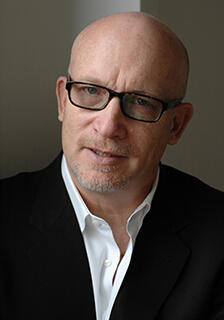Documentarian Alex Gibney and Psychiatrist Dorothy Lewis Discuss the Roots of Violence
Gibney, an Academy Award-winning filmmaker, and Lewis discussed Gibney’s new documentary, Crazy, Not Insane, at a Poynter Fellowship event.
By Karen Guzman

Studying the nation’s most violent murderers, Dr. Dorothy Otnow Lewis stumbled upon a diagnostic theory that would shape her life’s work and help reshape the criminal justice system.

Lewis’ work is the subject of a new HBO documentary by filmmaker Alex Gibney, a 1977 graduate of Yale College, who spoke with members of the Yale SOM and Yale communities on December 2. The event included a screening of Gibney’s documentary, Crazy, Not Insane, followed by a Zoom question-and-answer session with Gibney and Lewis, a clinical professor of psychiatry at the Yale Child Study Center.
More than 50 viewers participated. Zoë Chance, lecturer in marketing, moderated the discussion. The event was part of the Poynter Fellowship in Journalism Speaker Series, which brings distinguished journalists to Yale to share their research. Gibney, a winner of an Academy Award in 2008 for Taxi to the Dark Side, is a 2020 Yale Poynter Fellow.
In his new film, Gibney explores Lewis’ groundbreaking work into the psychiatric condition known as dissociative identity disorder (DID) and the role it may play in the formation of violent murderers.
Previously known as multiple personality disorder, DID is a mental disorder characterized by the maintenance of multiple personality states in a single individual. The condition is believed by Lewis to be the result of severe childhood abuse and, possibly, a neurological predisposition.
“Recognizing this disorder was a surprise to me,” Lewis said. “I did not expect to come upon murderers with dissociative disorders.” Lewis’ findings eventually influenced policy, U.S. Supreme Court cases, and what it means to be “insane” in the legal sense.
During the question-and-answer session, audience members discussed the “nature versus nurture” debate over the development of the disorder, as well as the enduring skepticism that greets the diagnosis.
“Right now the pendulum has swung toward the biochemical,” Lewis said, explaining that many doctors are currently putting more research emphasis on biological markers of disease, as opposed to behavioral data.
Gibney, whose other films include Enron: The Smartest Guys in the Room and The Inventor: Out for Blood in Silicon Valley, discussed the art of documentary filmmaking, noting that it is always a process of discovery, where “you write the script at the end.”
